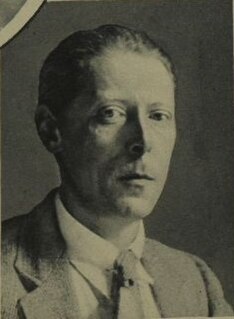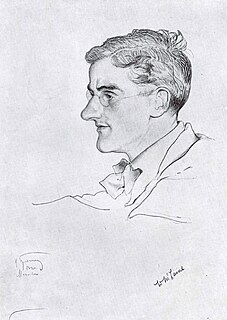Related Research Articles

Trotskyism is the political ideology and branch of Marxism developed by Russian revolutionary Leon Trotsky and by some other members of the Left Opposition and Fourth International. Trotsky self-identified as an orthodox Marxist, a revolutionary Marxist, and Bolshevik–Leninist, a follower of Marx, Engels, and of 3L: Lenin, Karl Liebknecht, Rosa Luxemburg. He supported founding a vanguard party of the proletariat, proletarian internationalism, and a dictatorship of the proletariat based on working class self-emancipation and mass democracy. Trotskyists are critical of Stalinism as they oppose Joseph Stalin's theory of socialism in one country in favor of Trotsky's theory of permanent revolution. Trotskyists also criticize the bureaucracy that developed in the Soviet Union under Stalin.

John Maclean was a Scottish schoolteacher and revolutionary socialist of the Red Clydeside era.

The Communist Party of Great Britain is a political group which publishes the Weekly Worker newspaper. The CPGB (PCC) claims to have "an internationalist duty to uphold the principle, 'One state, one party'. To the extent that the European Union becomes a state then that necessitates EU-wide trade unions and a Communist Party of the EU". In addition, it is in favour of the unification of the entire working class under a new Communist International. It is not to be confused with the former Communist Party of Great Britain, the Communist Party of Great Britain (Marxist–Leninist), or the current Communist Party of Britain.

Socialist Alternative (SA) is a Trotskyist organisation in Australia. As a revolutionary socialist group, it describes itself as aiming to organise collective struggles against oppression and inequality, while promoting the need for a revolutionary movement that could one day overthrow capitalism. Its members have been involved in organising numerous protest campaigns around issues such as LGBT rights, climate change, racism and refugee rights. The organisation also intervenes into the trade union and student union movements. It has branches and student clubs in most major Australian cities, and publishes the fortnightly newspaper Red Flag.

The Communist Party of Ireland is an all-Ireland Marxist–Leninist party, founded in 1933. The party is a member of the International Meeting of Communist and Workers' Parties.

John Turner Walton Newbold, generally known as Walton Newbold, was the first of the four Communist Party of Great Britain members to be elected as MPs in the United Kingdom.

Albert Samuel Inkpin was a British communist and the first General Secretary of the Communist Party of Great Britain (CPGB). He served several terms in prison for political offences. In 1929 he was replaced as head of the CPGB and made head of the party's Friends of Soviet Russia organisation, a position he retained until his death.

Opposition to World War I included socialist, anarchist, syndicalist, and Marxist groups on the left, as well as Christian pacifists, Canadian and Irish nationalists, women's groups, intellectuals, and rural folk.

Theodore Rothstein was a Soviet politician, journalist, writer and communist. He served as a Soviet ambassador in the 1920s.

For a number of decades after its establishment in August 1901, the Socialist Party of America produced or inspired a vast array of newspapers and magazines in an array different languages. This list of the Non-English press of the Socialist Party of America provides basic information on each title, along with links to pages dealing with specific publications in greater depth.

Thomas Quelch (1886–1954) was a British journalist and the son of veteran Marxist Harry Quelch. a member of the British Socialist Party in the early part of the 20th century, becoming a communist activist in Great Britain in the 1920s.
The Socialist Workers Party (SWP) is a far-left political party in the United Kingdom. Founded as the Socialist Review Group by supporters of Tony Cliff in 1950, it became the International Socialists in 1962 and the SWP in 1977. The party considers itself to be Trotskyist. Cliff and his followers criticised the Soviet Union and its satellites, calling them state capitalist rather than socialist countries.

The British Socialist Party (BSP) was a Marxist political organisation established in Great Britain in 1911. Following a protracted period of factional struggle, in 1916 the party's anti-war forces gained decisive control of the party and saw the defection of its pro-war right wing. After the victory of the Bolshevik Revolution in Russia at the end of 1917 and the termination of the First World War the following year, the BSP emerged as an explicitly revolutionary socialist organisation. It negotiated with other radical groups in an effort to establish a unified communist organisation, an effort which culminated in August 1920 with the establishment of the Communist Party of Great Britain. The youth organisation the Young Socialist League was affiliated with the party.

The Second International (1889–1916) was an organisation of socialist and labour parties, formed on 14 July 1889 at two simultaneous Paris meetings in which delegations from twenty countries participated. The Second International continued the work of the dissolved First International, though excluding the powerful anarcho-syndicalist movement. While the international had initially declared its opposition to all warfare between European powers, most of the major European parties ultimately chose to support their respective states in the First World War. After splitting into pro-Allied, pro-Central Powers, and antimilitarist factions, the international ceased to function. After the war, the remaining factions of the international went on to found the Labour and Socialist International, the International Working Union of Socialist Parties, and the Communist International.

The Committee for a Workers' International (CWI) was an international association of Trotskyist political parties. Today, two groups claim to be the continuation of the CWI.

William McLaine (1891–1960) was an engineer, Marxist and trade union activist.

Far-left politics in the United Kingdom have existed since at least the 1840s, with the formation of various organisations following ideologies such as Marxism, revolutionary socialism, communism, anarchism and syndicalism.

International Socialist Alternative is an international association of Trotskyist political parties.
The Executive Committee of the Communist Party of Great Britain was the governing body of the Communist Party of Great Britain between 1920 and 1991. It governed the party between congresses, at which successive ECs were appointed/elected. The EC played an important leadership role, according to the principles of democratic centralism to which the CPGB adhered.
References
- 1 2 Ted Crawford. "Index of articles in The Call, 1916-1920". www.marxists.org. Marxist Internet Archive. Retrieved 16 November 2020.
- ↑ "The Call launched as the voice of the British Socialist Party anti-war faction, 1916". Past Tense. 24 February 2016. Retrieved 16 November 2020.